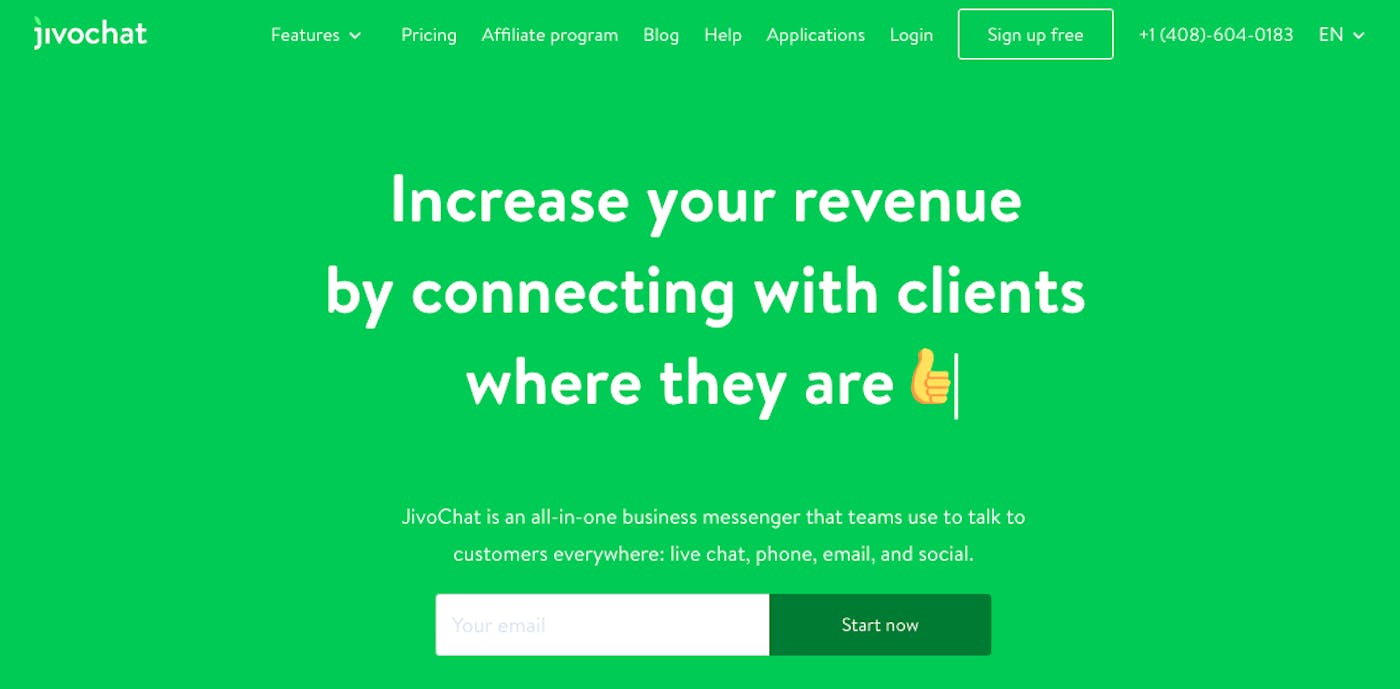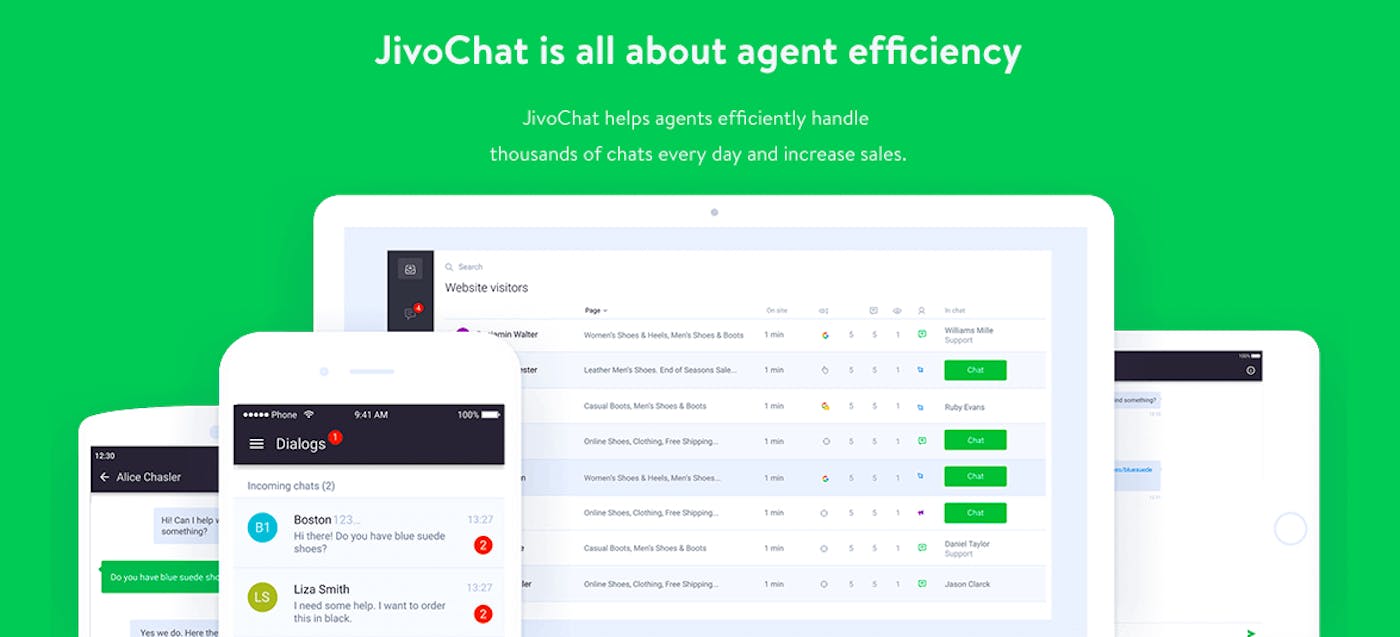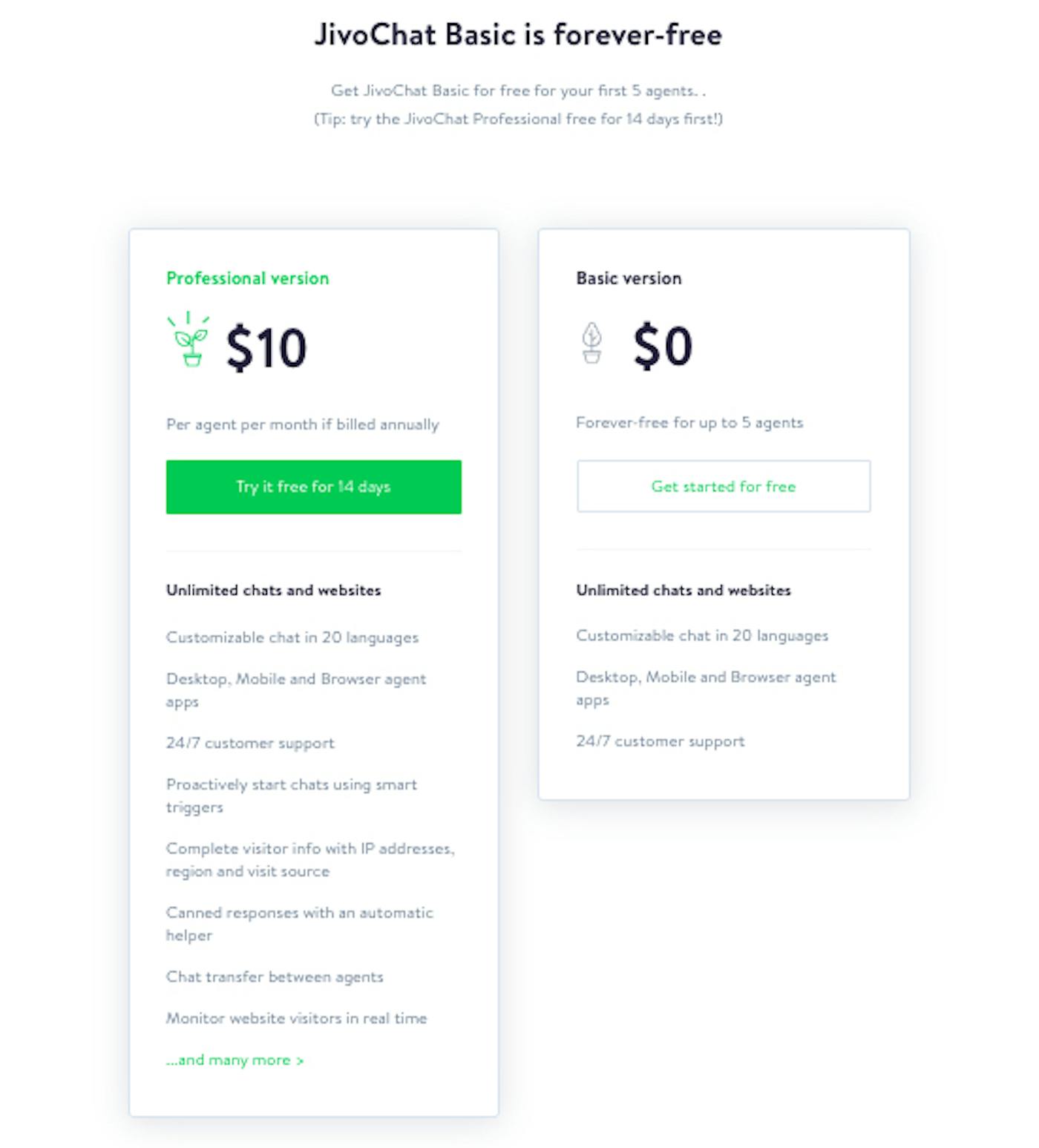Bootstrapping to $7.5MM by Letting My Product Speak for
Itself
Hello! What's your background, and what are you working on?
Hello there. My name is Timur Valishev, I’m 34 years old and I am the founder and CEO of JivoChat. I’m from Moscow, Russia, where I currently live. When not working on JivoChat, I spend time with my 3-year-old daughter and my wife.
JivoChat is an omnichannel business messenger. Put simply, Jivo is a software service that organizes communications with clients across a variety of different channels. Jivo’s main goals are to help you convert your leads into customers and give the best possible customer service experience in chat, on the phone, by email, and on every other channel your customers might want to use to contact your business. Our clients range from small startups to medium-sized enterprises.
Currently, we’re at about $7.5MM ARR. JivoChat is installed on more than 260,000 websites worldwide with more than 36,000 paying clients. We began all of this as a bootstrapped team with no investors.

What motivated you to get started with JivoChat?
I was previously running my other company, a virtual PBX tech startup called Octoline. I ran that venture for a few years, but we were struggling with conversions. I was looking for ways to build the brand and sought out live chat tools. There weren’t any really good products out there on the market that fit my team: all the products were either too expensive, too ugly, or both. As an engineer, I thought I could do better. That’s when I approached my old classmate to start working on a live chat messenger together.
What went into building the initial product?
In the beginning, we had limited startup funds. I got my first 10 customers by doing what most people would: making calls from my contact list. I let my friends and colleagues start using JivoChat for free and then we went from there. Later, I investigated web developer forums. When I was engaging with online communities I simply said, “Hey guys. Here’s a new product. You can get 30% in recurring commission if you work with us.” The rest is history.
How have you attracted users and grown JivoChat?
We launched JivoChat in December of 2011 and onboarded our first client in the same month. Since then, we’ve grown with momentum. The biggest positive of our business model is that whenever someone interacts with a website that uses JivoChat, the website visitor can interact with our chat widget, see the value, and seek out ways to buy it. This method is a source of our growth and the cornerstone of our business model.
Of course, we’ve experienced some roadblocks along the way.
To start, our pricing was different than what it is today. At one point, our product was divided into pieces. If you wanted to use specific features, you had to buy access to those features individually — there was no general package and you had to purchase additional features if you wanted them.
This broken-up organization was a mistake. Instead of converting a client once, we needed to convert clients several times during the lifetime of the client experience. We saw a big increase in revenue when we switched to a model of offering just two packages: free and paid.
We also made a mistake by not hiring a sales person from day one. Before 2013, our product was essentially selling itself. However, our conversion rates doubled after we onboarded a sales team. If we had made that switch earlier, we could’ve been more successful earlier on.
Our conversion rate varies significantly across different channels. For example, it’s much harder to convert active users in the United States market than in Latin America (still not sure why that is). In several new markets that we’ve branched out to (India, Africa, and South-East Asia), we have a solid stream of leads but it’s really hard to monetize clients from those markets. It’s also sometimes hard to effectively convert traffic from Facebook. Sometimes we pay more just for active signups and disregard the paid conversions because it’s all part of the process to create organic growth later on.
Churn has also been a challenge. Our churn rate is 45%, so the average lifetime is over two years. Actually, it’s considered a good figure among SaaS businesses who target small-to-medium businesses. The problem with our churn rate is that businesses just close and we can’t do anything about that. For us, integrations have been one of the most effective recipes to work with churn. Promoting integrations of our product with other tools (like CRMs) directly influences traction and “stickiness” of the product.
I think the best decision we ever made was to run a business model for a lightweight and easy-to-use product that generates instant value. With this model, you immediately have people coming to you to use your product. You can use it for free until you see that you will get even more value from using the paid version. There’s a definitive “aha” moment where you realize the value in investing in JivoChat Pro. This is what has allowed us to grow without investment. It’s a complete and balanced business model. In 2018 we had $6.2MM in total revenue without any investor activity.
My advice: try and find a balanced business model that makes it possible to start a company without raising any money. That way, there’s no pressure to grow faster from investors and there’s high motivation to make smart expense choices. A model like that is quite valuable.

What's your business model, and how have you grown your revenue?
We run on a freemium model. The free version is available for an unlimited time for up to five users, but with limited features. Once users realize that JivoChat is valuable as a sales generator, they choose to maximize their success and upgrade to JivoChat Pro.
There are many different payment systems that we use for different countries, depending on the norms and government regulations in a given country. Credit cards are common in the US, Brazil, Asia, etc. In Brazil, there are credit card payments that are needed to be approved by governments. In the US, there are a lot of local payment options.
In 2018, we saw $6.2MM in total revenue and our current run rate is around $7.5MM. We get about 1MM visitors per month (600K unique) and generate around 28K signups per month, with about 14K being organic. The rest comes from various other sources. There are around 226K active businesses using JivoChat (one business can use our widget on several sites or other channels), and 36K are paying for JivoChat Pro.
In general, there are six parameters in our business model, and over the past seven years, all of our numbers have improved.
- Number of inbound signups
- The conversion rate of signups into active users
- Conversion from active user to paid user
- Churn (calculated as % of the average number of paid users for the period)
- The average price per agent license
- The average number of agent licenses per account
Number of inbound signups
In 2018, we had 250K signups over the year. The most acceleration we’ve seen in this metric has been in the growth of signups coming from organic channels, which is mainly is generated by our freemium model through word-of-mouth. After that, our most important channels are affiliate programs and integrations.
Conversion rates
We’ve improved our conversion rate from signups to active users. These numbers vary from 50% to 80% depending on the country. One effective trick that helped us to increase this conversion was that we started offering people the option to test the chat widget themselves immediately after signing up. This seriously improved our conversion from sign-ups to active users.
We've averaged a 12% conversion rate from free users to paid by assembling and training an effective sales team. Fun fact: the conversion rate from assigned leads to paid users for good salespeople is 50% higher than the average teammates’.
Churn
The churn rate has improved a little bit. In 2013, it was a 55% churn, and now it’s around 45% annually. The average lifetime of a customer is a little over two years.
I think the most important thing we did was to invest in integrations with third-party software. We noticed lower churn on accounts that actively use integrations.
Average price per license and number of licenses per account
Some advice I could dispense is that you need to be very careful about offering discounts. Giving out discounts can bring more problems than customers.
In tandem with launching the sales team, I hired an external consultant to provide growth. His only objective was to increase cash flow, so he hired five to seven people, increased prices, and, at the same time, increased discounts. He operated off the sense of urgency to get people to pay now — this method increased cash flow dramatically. We doubled our revenue within the first couple of months. After that, however, our revenue didn’t grow for several months. Our contractor increased our revenue at the moment (by offering intense discounts) but did so by sacrificing future revenues. It was probably a mistake — I wouldn't do it so aggressively next time.

Have you found anything particularly helpful or advantageous?
I found that the skill of putting ideas, plans, and everything else into lists and mindmaps and then keeping those lists tidy and relevant is the key to effective decision-making and execution. It’s very important to learn how to use tools like Asana and Trello effectively because they can turn into a mess really quickly.
The Art of War by Sun Zhu is a good reminder that business is about winning money in battles against markets, competitors, and obstacles. Sometimes battles are asymmetrical — your enemy can be much stronger than you. But that doesn't mean that you can't win. If you have a strategy, a bit of courage, some resources, and skilled officers, you can succeed. That inspires me.
If I could go back in time, I would tell younger me, and new entrepreneurs in general, to invest in ourselves.
Where can we go to learn more?
Please check out www.jivochat.com, and find us on Facebook, Twitter, LinkedIn, and Instagram.
Let me know if you have any questions in the comment section!

WoW... I use JivoChat on Bybrand, which is very efficient. More interviews like this.
Which developer forums do you post, "“Hey guys. Here’s a new product. You can get 30% in recurring commission if you work with us.” and not get tagged as spam?
Thanks for the interesting interview.
My experience: one thing I can't stand about a JivoChat widget is when I listen to music on my phone and go to a website with your widget - the music goes quiet. And also when I used the widget on my own website and turn off "CTA to mssg with us", it was often make weird sounds when browsing through website.
Please clarify about your stats - it's only about JivoChat or it includes JivoSite?
Impressive. Thank you for this interview!
Great story. Thanks for sharing all this valuable insight. Well done!
good luck Timur! looks very inspiring!
This comment was deleted 4 years ago